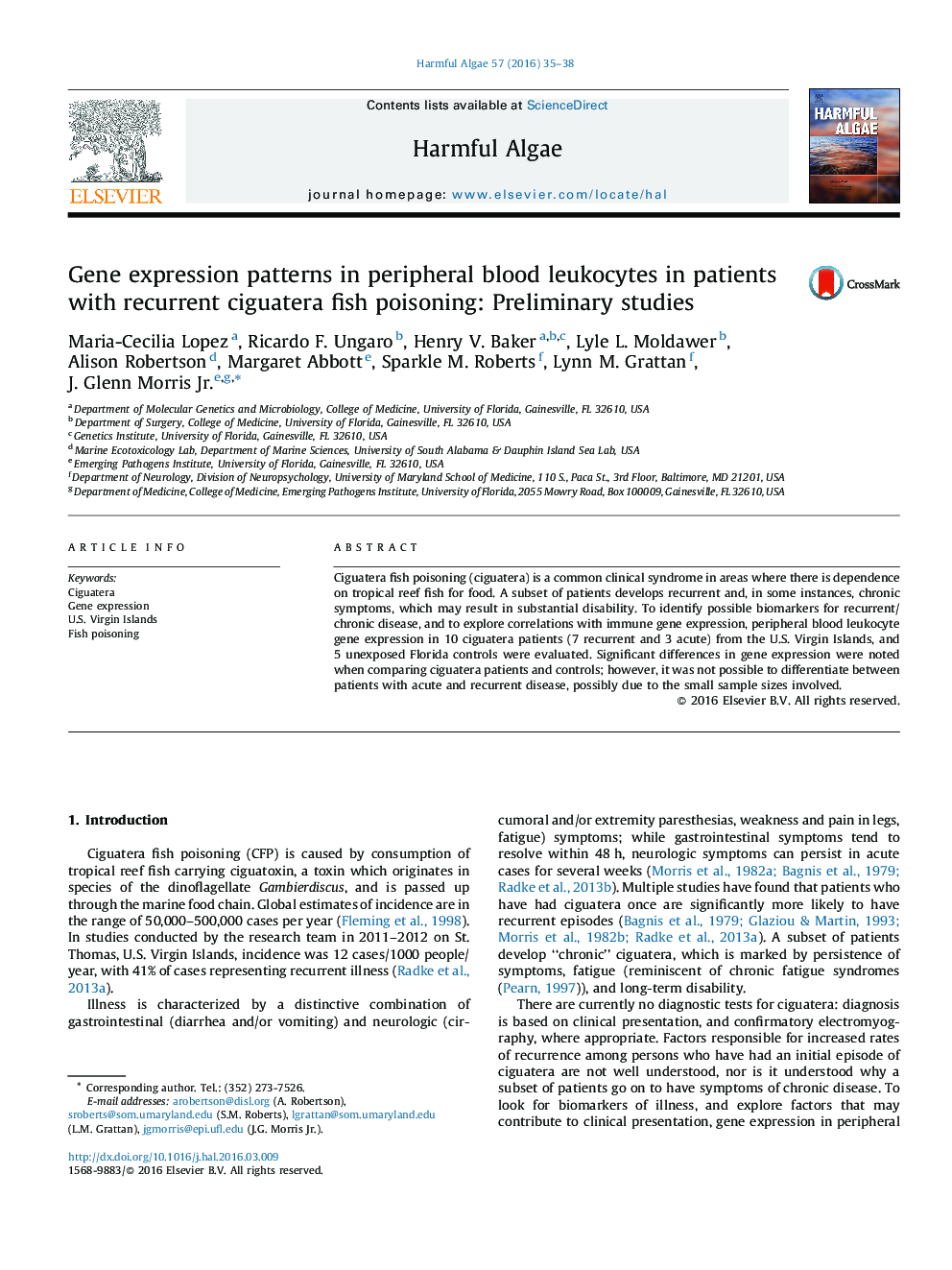| Article ID | Journal | Published Year | Pages | File Type |
|---|---|---|---|---|
| 4545174 | Harmful Algae | 2016 | 4 Pages |
•PBL gene expression profiles of ciguatera patients differ from Florida controls.•Strongest linkages with platelet aggregation and chemokine expression genes.•Confirmation will require larger sample size and more closely matched controls.
Ciguatera fish poisoning (ciguatera) is a common clinical syndrome in areas where there is dependence on tropical reef fish for food. A subset of patients develops recurrent and, in some instances, chronic symptoms, which may result in substantial disability. To identify possible biomarkers for recurrent/chronic disease, and to explore correlations with immune gene expression, peripheral blood leukocyte gene expression in 10 ciguatera patients (7 recurrent and 3 acute) from the U.S. Virgin Islands, and 5 unexposed Florida controls were evaluated. Significant differences in gene expression were noted when comparing ciguatera patients and controls; however, it was not possible to differentiate between patients with acute and recurrent disease, possibly due to the small sample sizes involved.
